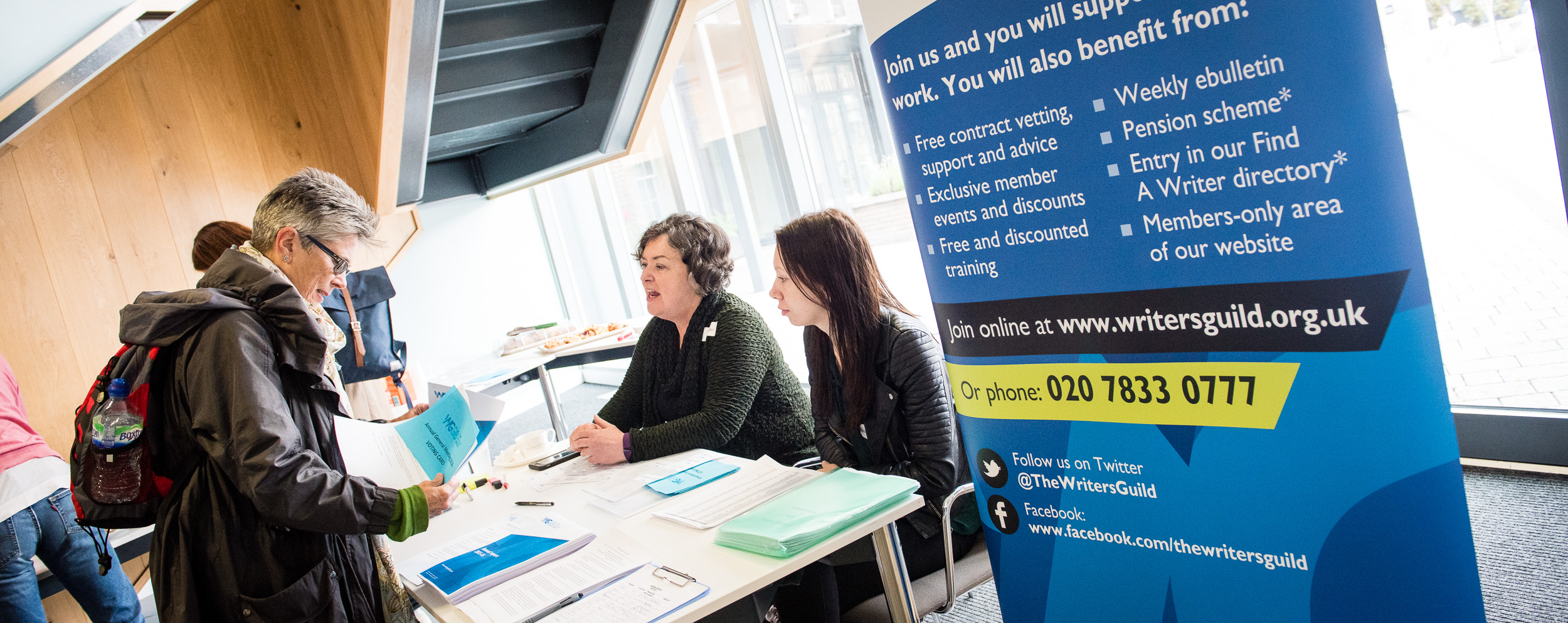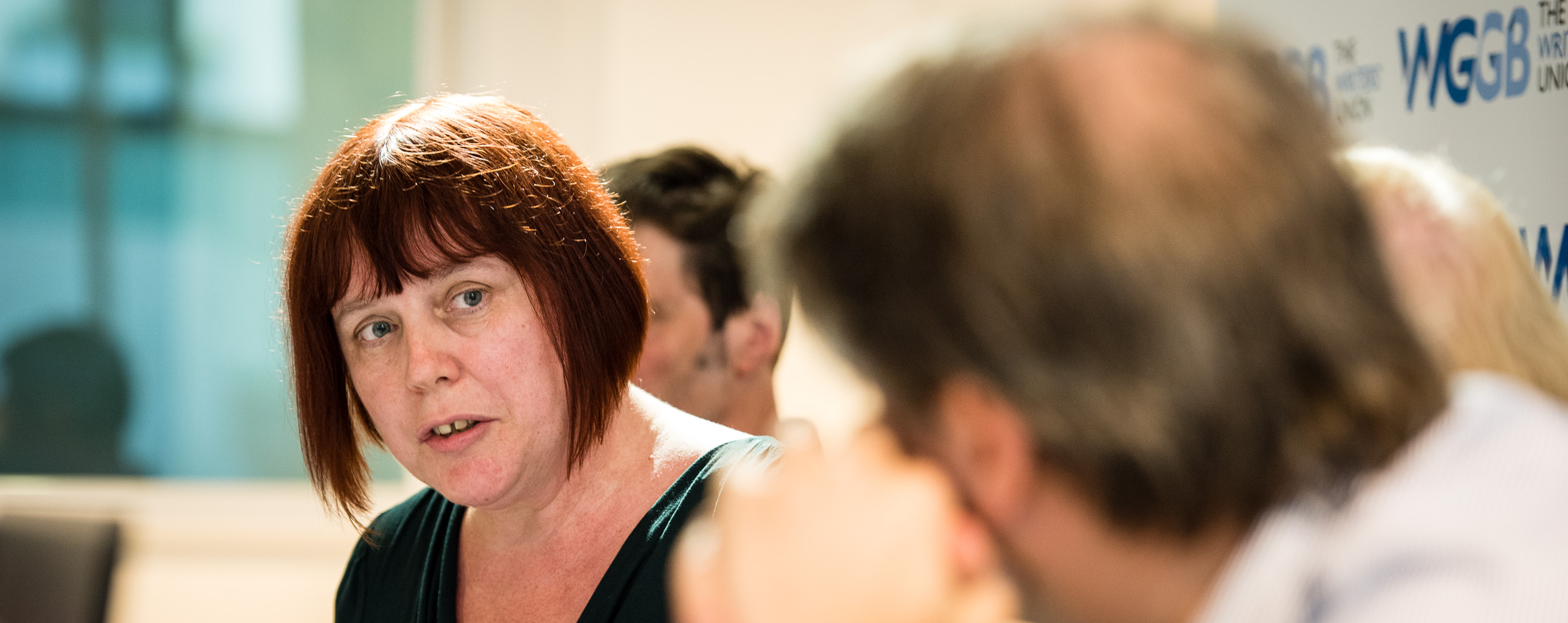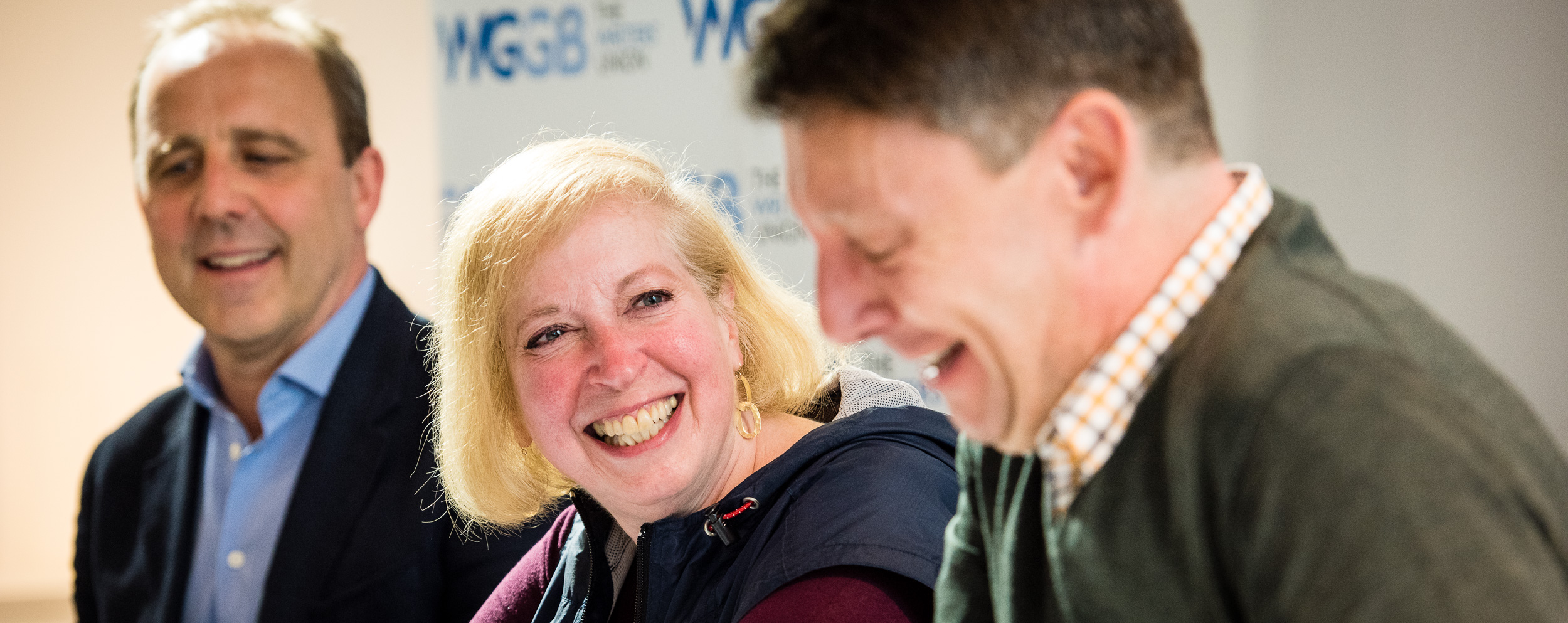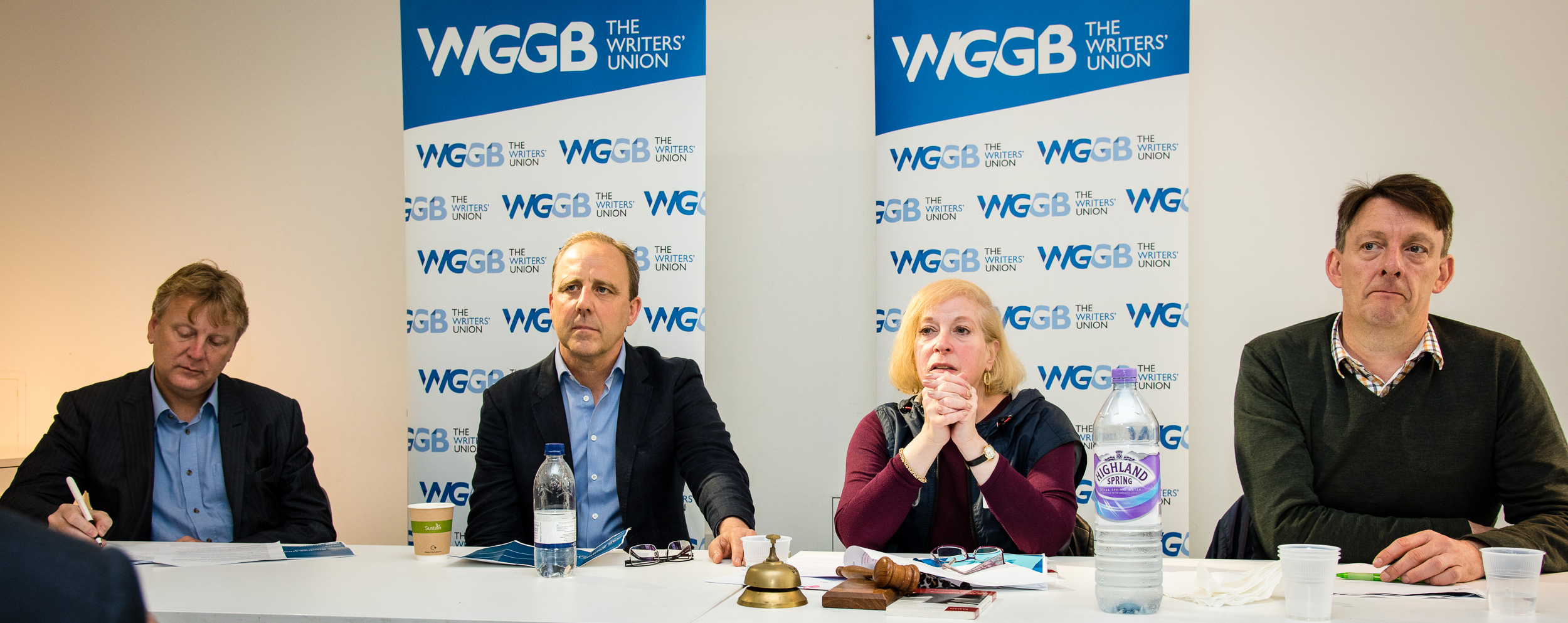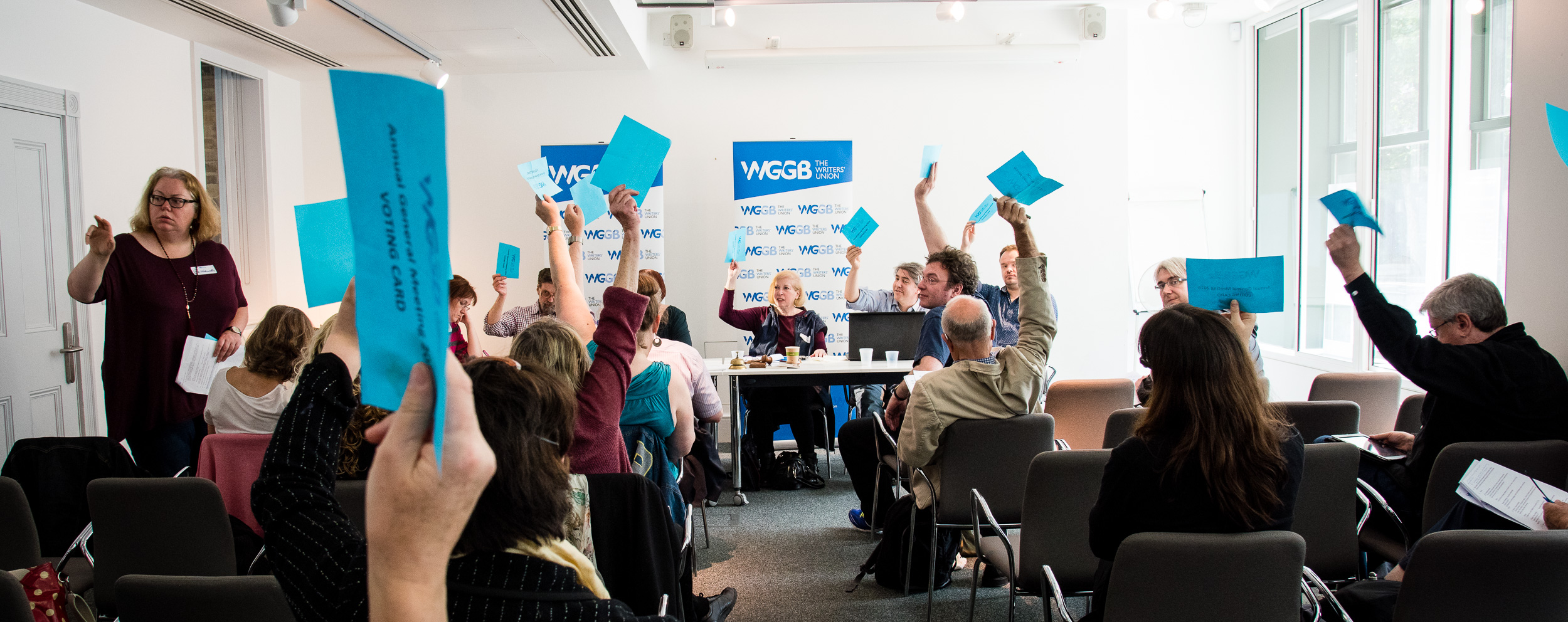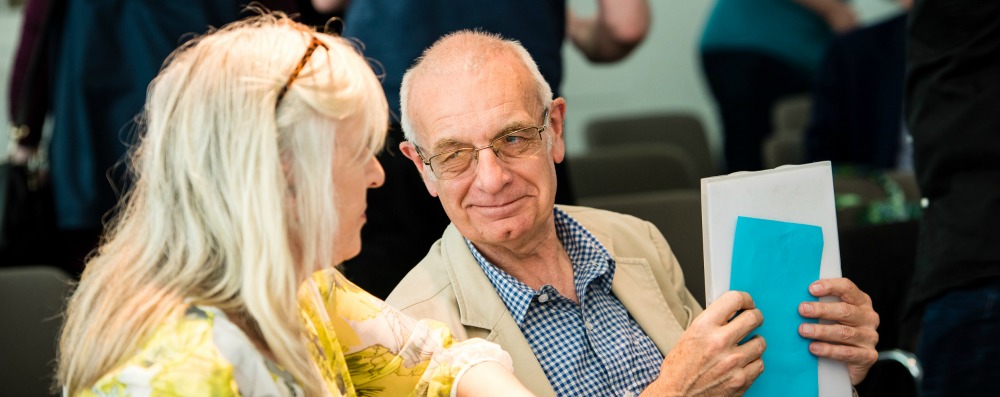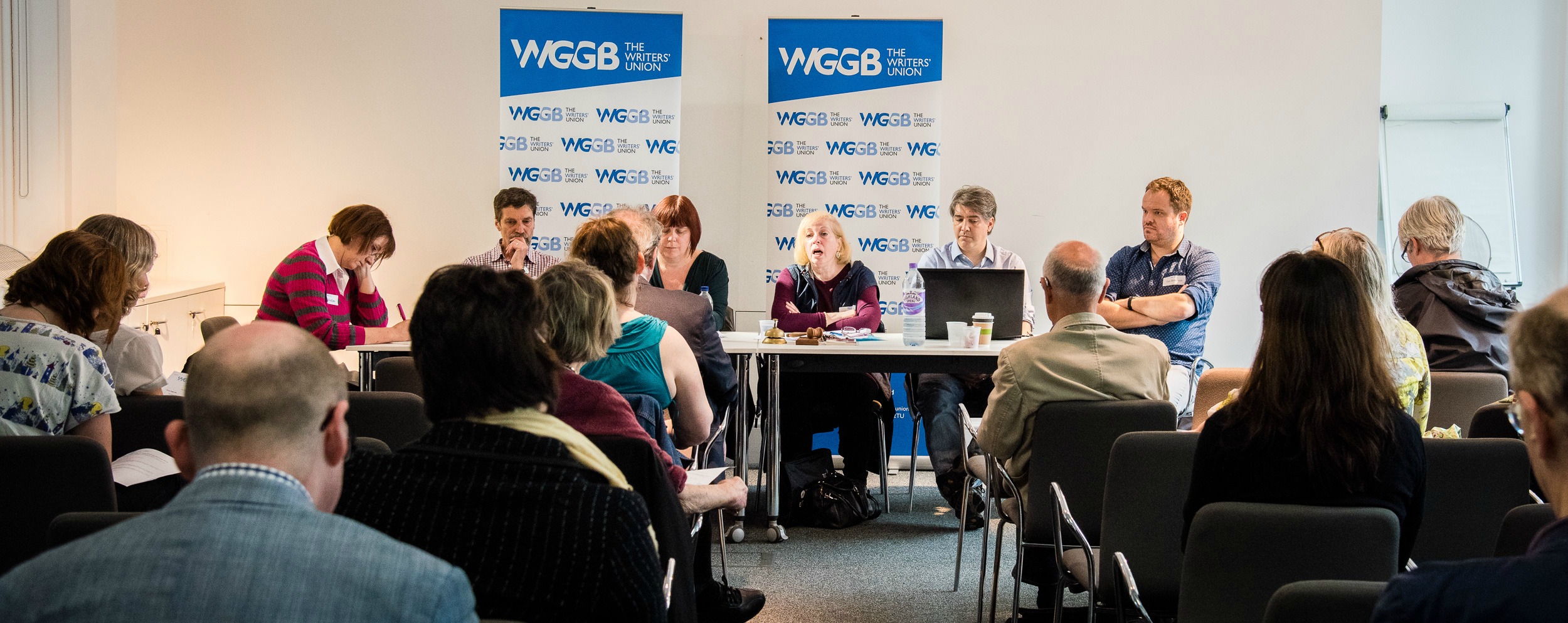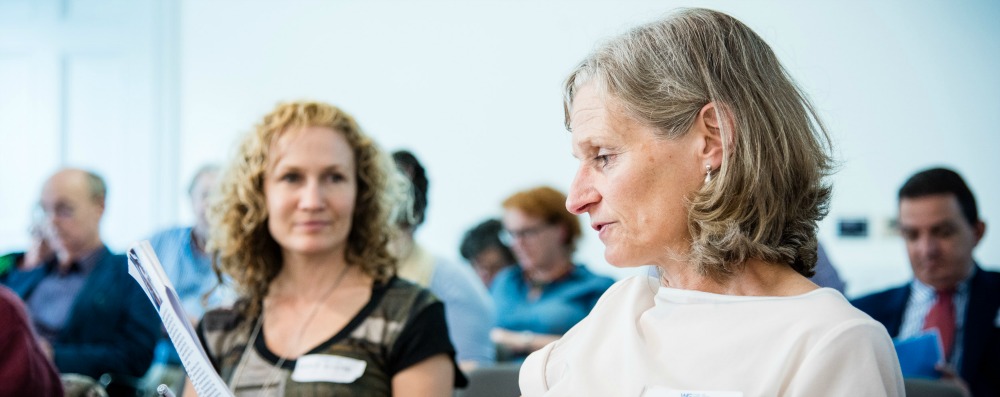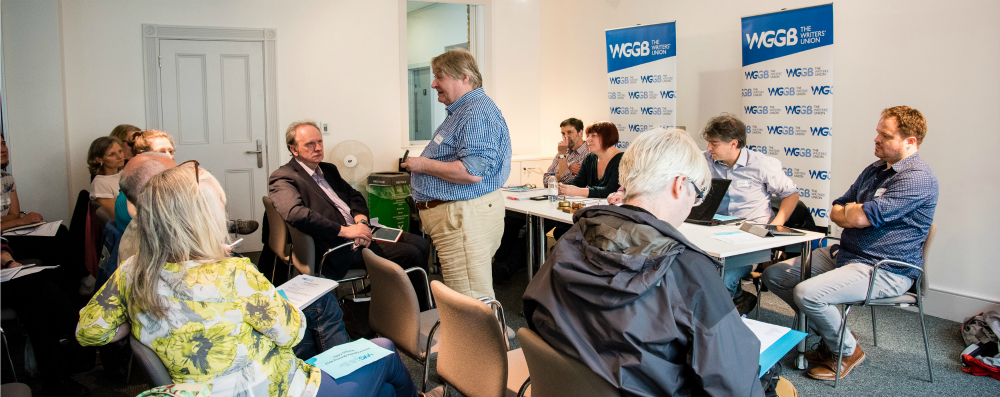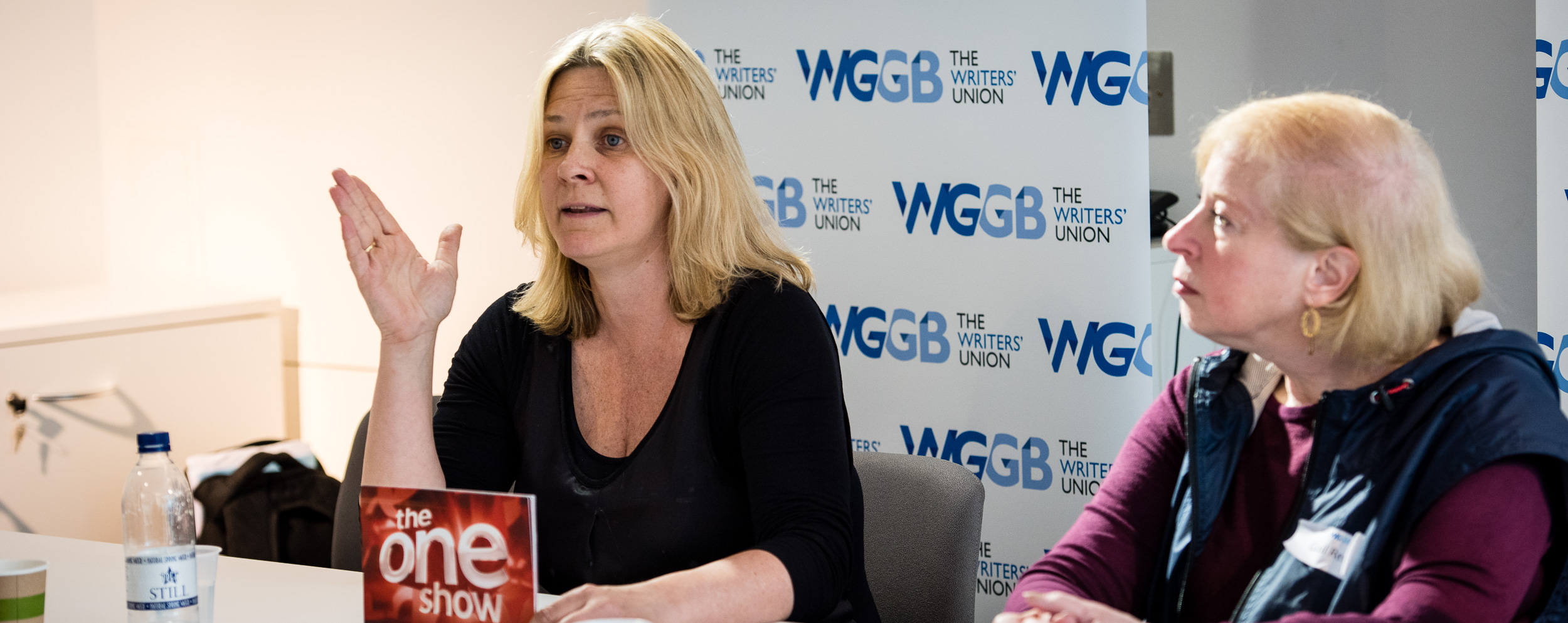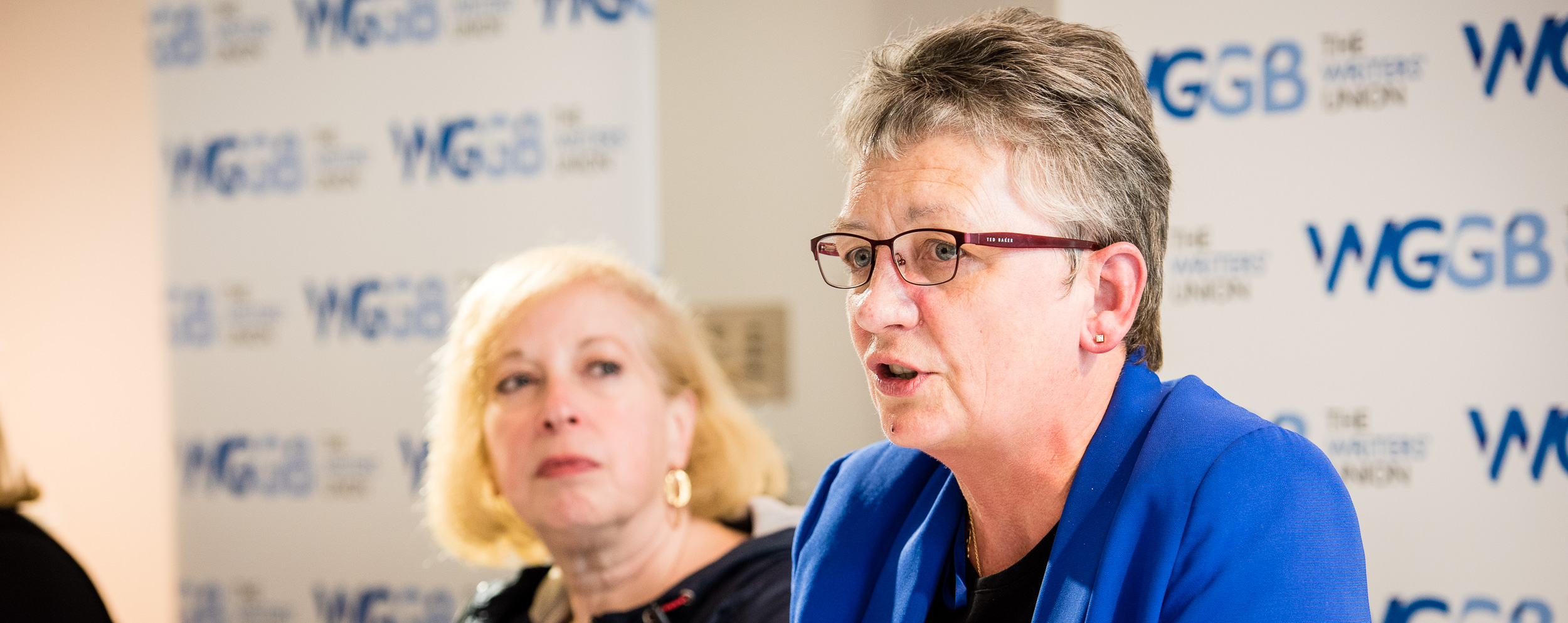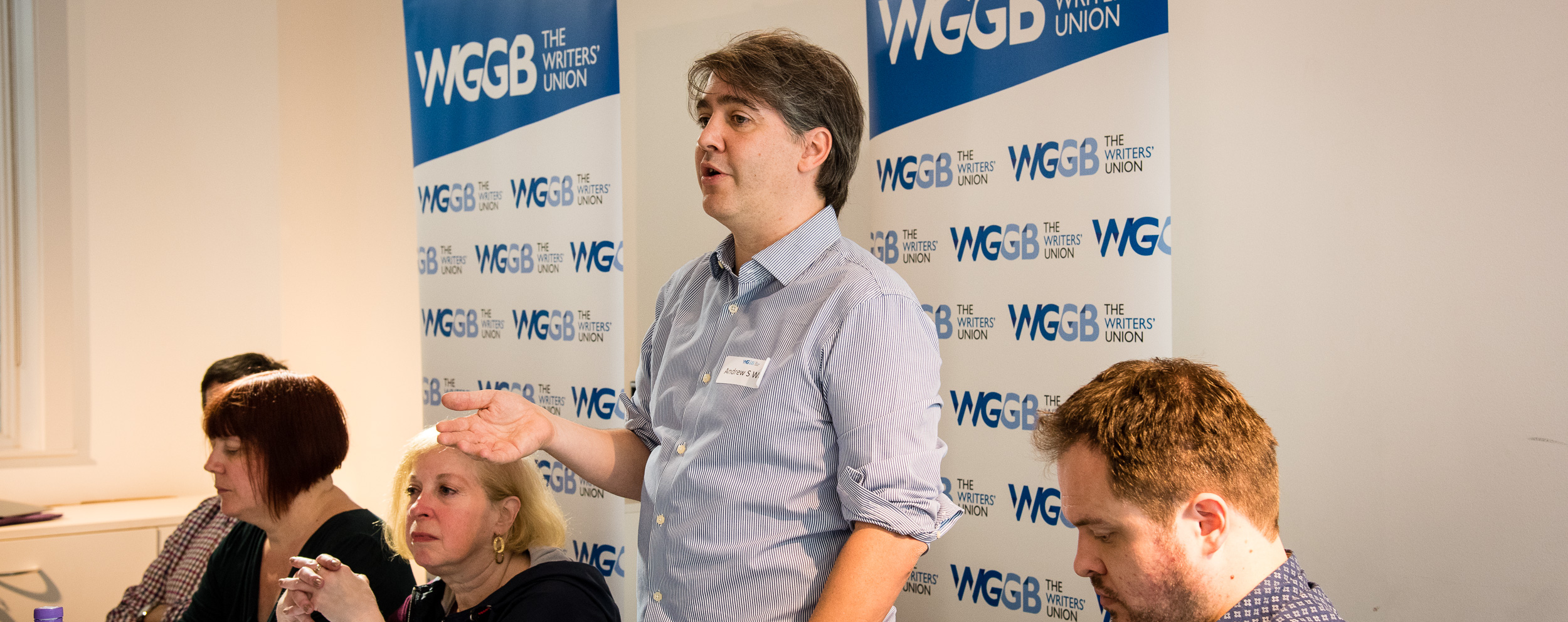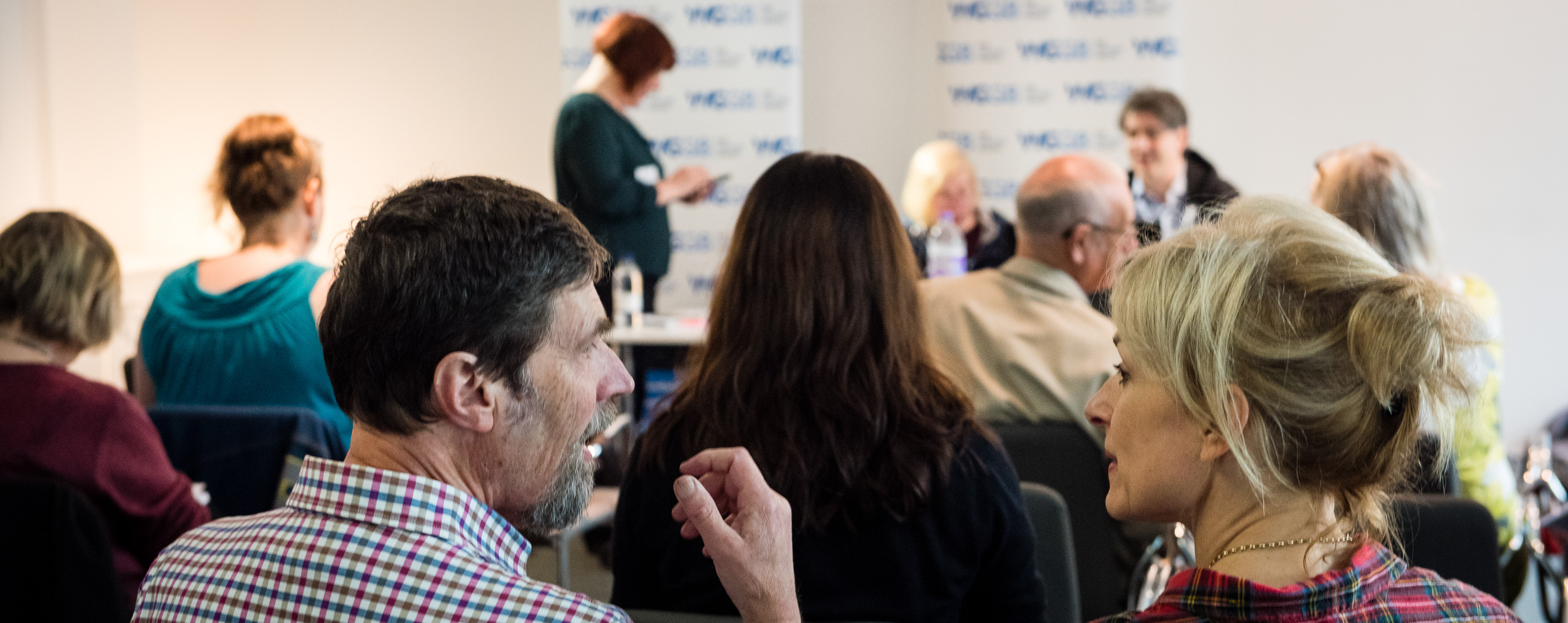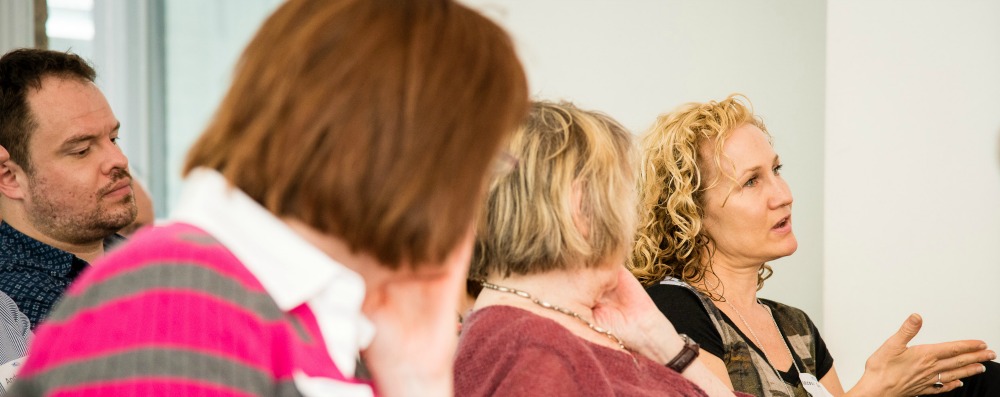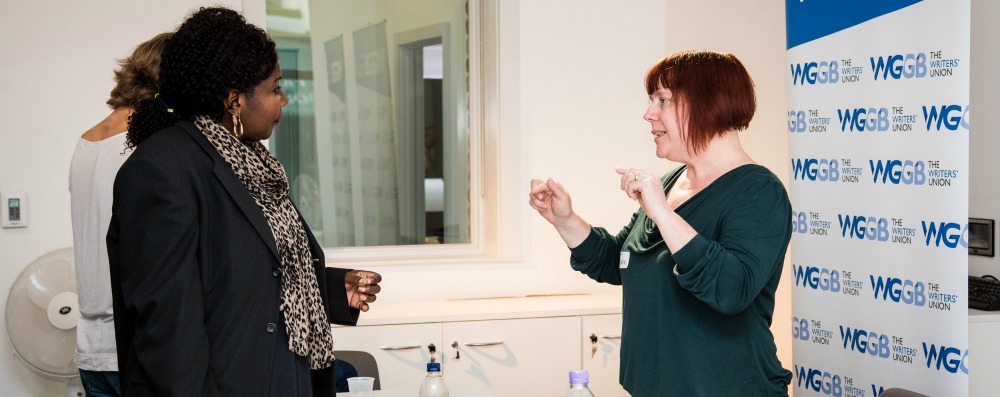Acting General Secretary Ellie Peers, speaking at the Writers’ Guild AGM on 17 June 2016 in London, said she feared that “equality had dropped off the agenda”. While she welcomed lots of talk in the industry about diversity and inclusion over the past year, she said she was concerned that the speed of change on gender equality was still too slow and pointed to figures that illustrated this.
“The current state of play is that women write 14.6% of UK films, women write 32% of prime time drama. And in theatre women write 31% of new plays. If we want our industry to flourish we will need fresh stories to be told from different perspectives.
“We are talking to commissioners and funding organisations, arguing that they need to make a solid commitment to address gender inequality. That by 2020 there should be a 50/50 split of men and women commissioned in film, TV, theatre and radio.
“That within the 50/50 split there is a significant increase of BAME writers, LGBT+ writers, writers with disabilities and those from poorer backgrounds.
“That these opportunities are not restricted to women writers telling stories about women or pregnancy; or black writers telling stories about inner-city council estates.
“That as professional writers they have the opportunity and access to prime time commissions across genres and are commissioned for more than one episode in a soap.
“We aren’t proposing to kick men out of the room, we just want to open the door a little wider so that women can get in too!”
Her thoughts were echoed by WGGB Chair Gail Renard who spoke of the coming year as “The Year of Take Back Power.”
“Somewhere along the way… writers slipped down the food chain and are not being treated as an important part of the creative team… We need to get back into the production meetings, the studio, the editing and dubbing suites or how else are we going to perfect our craft? This isn’t pie in the sky. Until recently this is the way it was done – and very successfully too.
“In future writers – especially experienced writers – should not have to do trial scripts for free; especially on series they’ve already written on. The Guild has a Free Is NOT An Option policy and we will be sticking to it.
“Writers should not have to speak at festivals for free when the festivals are being run as commercial concerns. When writers’ work is nominated for an award – here’s a novel thought – they should be invited to the awards ceremony.
“Let’s take back the power – and working together, we will.”
Gail Renard also made a presentation to former WGGB General Secretary Bernie Corbett, who stood down in May this year, after more than 15 years at the helm of the organisation. He was the longest-serving leader of WGGB since it was formed in 1959.
Paying tribute to him, Renard said: “When Bernie Corbett joined us in 2000, he brought the WGGB into the 20th century and then into the 21st. He’s a top negotiator and respected worldwide… It’s really thanks to Bernie’s foresight and skill that we have great agreements – including the best online agreements – in the world. The WGGB owes Bernie Corbett a great vote of thanks.”
Bernie Corbett said that being the General Secretary of WGGB was the best job he had had and a “real privilege”.
The AGM heard from BBC Studios, the £400-million division of the BBC launched in April 2016. From April 2017, pending approval from the BBC Trust and charter renewal, it will become a separate company owned by the BBC.
Mark Linsey, Director of BBC Studios; Roger Leatham, its Director of Entertainment, Music and Events; and Nick Betts, Genre Director for Scripted, outlined the developments planned in the near future, including outside tendering for shows.
Mark Linsey said “this all started to make BBC in-house production a vibrant creative place.” One of the reasons it was developed, he added, was to tackle problems faced by the corporation in the past in attracting talent. It was hard he said for the BBC to compete “against indies with deeper pockets”.
The audience were told that Studios was “not a PLC”, that profits would come back to the BBC and the BBC would hold intellectual property rights. BBC Studios would continue to work with the BBC Writersroom and training writers would still be important.
WGGB members present were reassured the changes would not mean that WGGB national agreements would be “ripped up” but they may evolve.
Aileen Spankie and Jill Hallowell from the BBC’s Project Diamond Team made a presentation about the new industry-wide diversity monitoring system. Created by BBC, Channel 4, ITV and Sky, and supported by Pact and Creative Skillset, through the Creative Diversity Network, Project Diamond will launch this summer to provide consistent and comprehensive monitoring and reporting of diversity, and to answer the key questions “Who’s on TV?” and “Who makes TV?”
People working on or off screen on all UK-originated productions will now be asked to enter information on their gender; gender identity; age; ethnicity; sexual orientation and disability into the Diamond monitoring system. Production management teams will be asked to oversee the completion of forms that detail the diversity of on-screen contributors and off-screen production teams and crew. They will also be asked to record how an audience might perceive the diversity of characters and contributors on-screen.
The quality and usefulness of the data depends on contributors, crew and production staff being encouraged to share their data. Published Diamond reports will be anonymised and no individuals will be identifiable from them.
Results of recent WGGB elections were announced. The updated list of WGGB Executive Council representatives can be seen in the Contacts section of our website.
The following vacancies still exist:
- Chair of the Videogames Committee
- Chair of the Books Committee
- Chair of the Comedy Committee
- Chair of the Radio Committee
- Chair of the East Midlands region
- Chair of the South West (Wessex) region
- Chair of the South West (Devon & Cornwall) region
- Chair of the Editorial & Communications Committee
Motions were passed as follows:
• To change the WGGB Rule Book to create a new seat on the EC for a Comedy Representative
• To change the rules to allow the retirement of the WGGB Children’s Chair on the EC
• To change the rules to create a new seat on the EC for an Editorial & Communications representative
• To call on the EC to investigate and report back to WGGB members on the practice of online booksellers hiding book costs behind postage (and the impact this has on writers)
An updated Rule Book will be published on the WGGB website shortly.
In her closing remarks, WGGB President Olivia Hetreed talked about the increasing pressures writers are under “in an awful lot of different ways” and specifically in relation to bullying and harassment. She said that even if you have an agent it can feel lonely and isolating. “It can be frightening, but that is why the Writers’ Guild is here.” She urged members to come forward and report problems and said everyone should play their part in not standing by when incidents like bullying were taking place.
